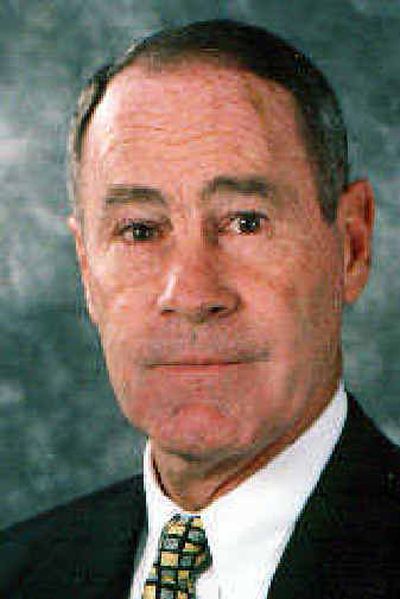This is ‘not the norm’

Spokane’s Mike Pannek is in the center of a storm.
Three months ago, the former director of Geiger Corrections Center left Spokane for a one-year stint as warden at an Iraqi prison.
At that time, he described the torture Saddam Hussein’s followers inflicted on many of their prisoners, not knowing at which prison he would be assigned to work.
Then Pannek ended up at Abu Ghraib, the most infamous of Saddam’s prisons and the site of recently revealed prisoner abuse at the hands of American military.
Pannek said he can’t speak about his job at the prison because of contract restrictions with his employer, Scientific Applications International Corp., which has a contract with the Ministry of Justice. He wasn’t at Abu Ghraib when the abuse occurred.
All he would say in an e-mail on the topic is that such abuse is “NOT THE NORM,” and that he’s witnessed “a lot of Americans working very hard. It makes me proud every day. Especially the military guys! Don’t judge them by the unfortunate, stupid acts of a few.”
But Pannek did describe via e-mail and satellite telephone some of his experiences in Iraq over the past few months.
“I’ve been here a little over a month now, and it’s a terribly interesting place. It’s like the Wild West in many regards. We have to dodge mortar rounds on occasion,” he said.
Because of the hazards of travel within Iraq, Pannek spends a week at the prison before taking a couple of days of rest at his hotel in Baghdad. He used to make the commute daily.
“Traveling between any two points requires travel in armored vehicles with military escorts,” Pannek said, adding that a law enforcement vehicle was hit by an explosive device on its way to work Friday, but no one was injured.
Focus on procedure leaves little time to be scared, he said, although he admitted to “some nervous moments, especially when we get stuck in traffic. Being a sitting duck is not a great feeling.”
The food isn’t too hot, either.
Pannek volunteered to make spaghetti for everyone at his hotel, and requested the ingredients from the hotel cook. But when he showed up to start making the sauce, Pannek said, all he found was some chicken patties. No hamburger. No tomato sauce.
Most of Pannek’s interactions with Iraqis are in the prison, but he said that others he speaks to or sees in other places are evenly divided among those who are pleased with the American presence, those who want Americans out of their country and those who are indifferent.
“I frequently hear stories of the abuses that Saddam’s regime perpetrated upon this nation. Saddam’s henchmen murdered the husband and brother of an interpreter in my office,” he said.
Pannek said he’s sometimes surprised by the people he meets.
He told the story of escorting some Iraqi welders into the prison when one asked him in a slightly British accent, “Who do you like to read?”
“Tom Clancy, John Grisham and Stephen King were the only authors that came to mind,” said Pannek. “He then asked, ‘What about Hemingway, Steinbeck, Henry Miller and Norman Mailer?’ I was shocked! He went on to recite some poetry, quote a few American presidents and talk about a few celebrities like Peter Lawford and Frank Sinatra.”
Back at home, Pannek’s wife, Sherry, is also a bit nervous about having her husband working in Iraq, particularly in light of the extra attention the prison is receiving because of the abuse scandal.
“He’s got a real challenge with the news. It didn’t happen under his watch or even the company he works for,” Sherry Pannek said.
Right after the story about prisoner torture broke, Pannek said, her husband told her that 300 women were outside Abu Ghraib, desperate to see their relatives inside.
Though Mike Pannek can’t discuss his job now, prior to his departure he said that he was mainly going over to train a new Iraqi warden and other Iraqi prison guards. After a year, he’ll return to Spokane and new adventures.
Sherry Pannek said another big part of his job has been trying to sort through which prisoners belong there and which should be released. About 300 prisoners were released Friday from Abu Ghraib.
Being separated has been difficult for both spouses, but Pannek said he hopes to visit his wife in Europe this summer and his son, Mark, a Marine stationed near the Syrian border, sometime in the next couple of weeks.
“I’m looking forward to the reunion,” Pannek said. “The resulting photo will be a proud addition to the Pannek mantel!”